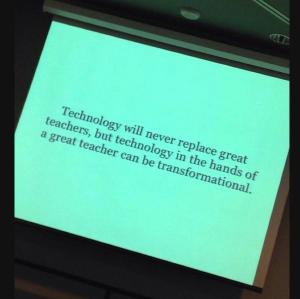Picture : peterfaur.com
The majority of this post was written in October of 2012. As we focus on inclusion and special needs I think success and is an important element. We need to celebrate our success even the small ones. We need to instill in all of our students that "failure is not fatal".
What lessons and guidance can we provide our children to place them on the path of success? Lord Rabbi Jonathan Sacks provides us some insight into this process in his recent weblog (10/13/12) entitled “Credo: More than we have faith in God, God has faith in us”. He says:
“What makes some children succeed while others fail? More generally, what drives some people to great achievement while others languish, their dreams unfulfilled? That is the question that intrigued American writer Paul Tough. His answer is contained in his book How Children Succeed, published last month.
Tough discovered that what makes the difference is not intelligence, skill or native ability. It isn’t cognitive at all. The difference, he argues, lies in character, in traits such as discipline, persistence, self-control, zest, gratitude, optimism, curiosity, courage and conscientiousness. One dimension, though, matters more than all the others. He calls it grit: the ability to keep going despite repeated failures and setbacks. People with grit grow. People without it are either defeated by life’s challenges or – more likely – become risk-averse. They play it safe.”
( As we focus this month on inclusion and and different learning Disabilities I want to reiterate Rabbi Sacks' words: Success is not defined by intelligence and cognitive ability and therefore we need to insure that all of our students and children achieve success )
It may seem counter intuitive that cognition, intelligence or skill will not solely
pre-determine a person to great accomplishments, rather, learning to deal effectively with challenges and adversity is the most important lesson of all. We see this all the time in educational settings* and in life – children are always learning from their mistakes. We need to teach our kids what “grit” means - how to get-up, dust off their pants, stand tall and prevail over limitations and shortcomings. In my office, there hangs a sign stating “We all make mistakes. It is what we happens after we make the mistakes that matters.”
(* I think most teachers will tell you that the students that face the most adversity and those that seem to face it head on and succeed are often the students that have the most difficulty in class and have certain issues that make it more difficult for them to "succeed". However given our new understanding it is these students who get up every morning and come to school and face those challenges are the ones that are truly successful. We need to let them and other know that. )
Mistakes, failures and difficult situations do not cease to exist when a child leaves the protective confines of school. Trials and tribulations continue throughout one’s life. Many of us both in our personal, professional and even our communal lives have faced disappointments and setbacks. What gives us the “grit” or the resolve to continue? Rabbi Sacks provides some personal insight into this question as well. He says,
“ I learned to embrace failure instead of fearing it. Why? Because at some point on my religious journey I discovered that more than we have faith in God, God has faith in us. He lifts us every time we fall. He forgives us every time we fail. He believes in us more than we believe in ourselves. He mends our broken hearts. I never cease to be moved by the words of Isaiah: “Even youths grow tired and weary and the young may stumble and fall, but those who hope in the Lord renew their strength. They soar on wings like eagles, they run and don’t grow weary, they walk and don’t grow faint.”
The greatest source of grit I know, the force that allows us to overcome every failure, every setback, every defeat, and keep going and growing, is faith in God’s faith in us.”
When children see their parents and teachers acknowledging, embracing and dealing with disappointment head on, they too will learn that is it OK to fail – as long as it is followed by a renewed commitment to solving the problem and learning from the experience. As we wish and hope that our children and students achieve much success in school and throughout their lives, let us also hope that they are given the strength and “grit” needed to overcome whatever setbacks come their way. May they always have faith in G-D and more importantly remember that G-D has faith in each one of us.















%2B(2).gif)


